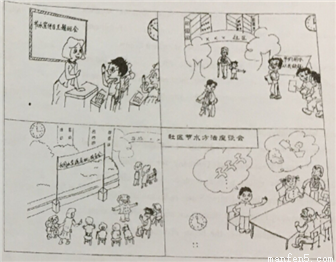题目内容
When building houses, people used to think about not only the climate of the areas but also the building materials and the fashions for their houses. However, since electricity became more and more expensive, people began to pay much more attention to the energy they could get for their houses and the new ways they could find to protect their houses from both cold and heat.
Now, houses of an old yet new type have been widely built. In some parts of the world, people share their houses with their livestock(家畜).During cold weather, they gather their cows, goats, or other animals and keep them on the first floor of their houses. The reasons are that the animals can be protected from the cold and that they can help to heat the houses as well. The body heat given off by the animals rises to the second floor of the houses, where people live. By sharing their houses with their livestock, people gain a source of heat.
People who live in or near cities do not usually keep livestock. However, home builders use the fact that heat rises. This natural law can be used in building houses in these areas. Instead of keeping livestock on the first floor, builders fill it with large rocks. As they are open to the sun’s rays during cold weather, these rocks take in heat. They also give off the heat, and, of course, the warm air rises into the living areas of the houses. So these houses are energy-saving.
House-building becomes a great challenge(挑战)to building designers and energy engineers. They try to meet this challenge by learning from old traditions and by using modern technology. And someday in the future, people will be able to live in more energy-saving houses.
1.What did people begin to consider as electricity was no longer cheap?
A. The climate of their areas. B. The energy for their houses.
C. The fashions for their houses. D. The building materials for their houses.
2.People in some areas gain a source of heat by _________.
A. keeping their livestock downstairs
B. protecting their livestock from the cold
C. sharing their houses only with their cows
D. living on the second floor with their livestock
3.The underlined words “natural law” in the third paragraph refer to the fact that ________.
A. heat raises the temperature in the houses
B. heat goes in the upward direction
C. heat goes up if temperature is raised
D. heat increases the temperature of rocks
4.From the passage, we can conclude that __________.
A. people will no longer consider building materials in the future
B. energy-saving buildings will become more popular in the future
C. almost all people will move into the houses heated by large rocks
D. energy engineers will devote themselves only to modern technology


